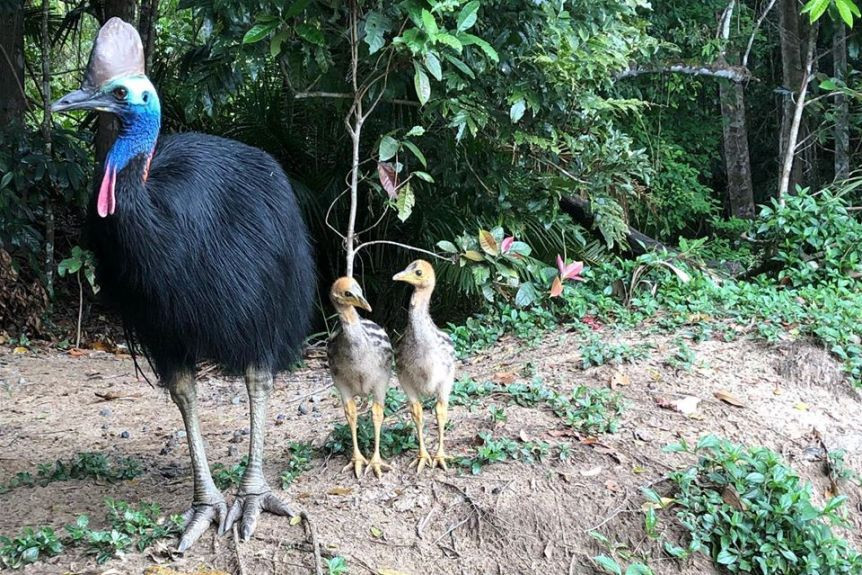General News
2 March, 2021
Have you seen Elvis?
One of Far North Queensland’s most iconic and loved individual animals has gone missing.

One of Far North Queensland’s most iconic and loved individual animals has gone missing.
Elvis the Cassowary has been a well-known site on the Kuranda range for years. Elvis was a delight to road users and visitors to the Kuranda region, where he used to forage on the side of the road with his chicks.
Over the past few years Elvis had suffered several tragedies with all his chicks from last year killed by suspected vehicle trikes and then Elvis lost his long-time girlfriend and partner Priscilla
Now fears of Elvis’s demise has locals worried as two of his chicks from his latest batch were found wondering around alone near the Kuranda bus depot.
Kuranda Conservation community nursery co-ordinator Jax Bergersen said Elvis was last seen over a week ago near the cassowary’s nest.
“The last sighting of Elvis was on his sitting on his nest, unable to stand,” she said.
“We went out there to help sustain him, making sure he was comfortable and had water.
“The next day we checked again, and Elvis was able to get up and take a few steps.
“Three days ago, we went back to check, and Elvis wasn’t there.”
Ms Bergersen said they believed Elvis may have been hit by a car on or around February 15-16, although no reports had been received of a Cassowary strike.
“It looked as if he had abrasions on his neck and some damage to his rear.” she said.
Ms Bergersen said volunteers had been several searches to find Elvis, with no luck.
A DES spokesperson said officers were attempting to rescue the second of Elvis’ chicks, with the intention of taking them into protective care.
“Once both cassowary chicks are rescued, DES wildlife officers will place them in a privately operated cassowary rehabilitation centre at Barrine, where they will remain until they are ready to be released back into the wild,” they said.
To report a cassowary sighting, call the Department of Environment and Science hotline on 1300 130 372.



